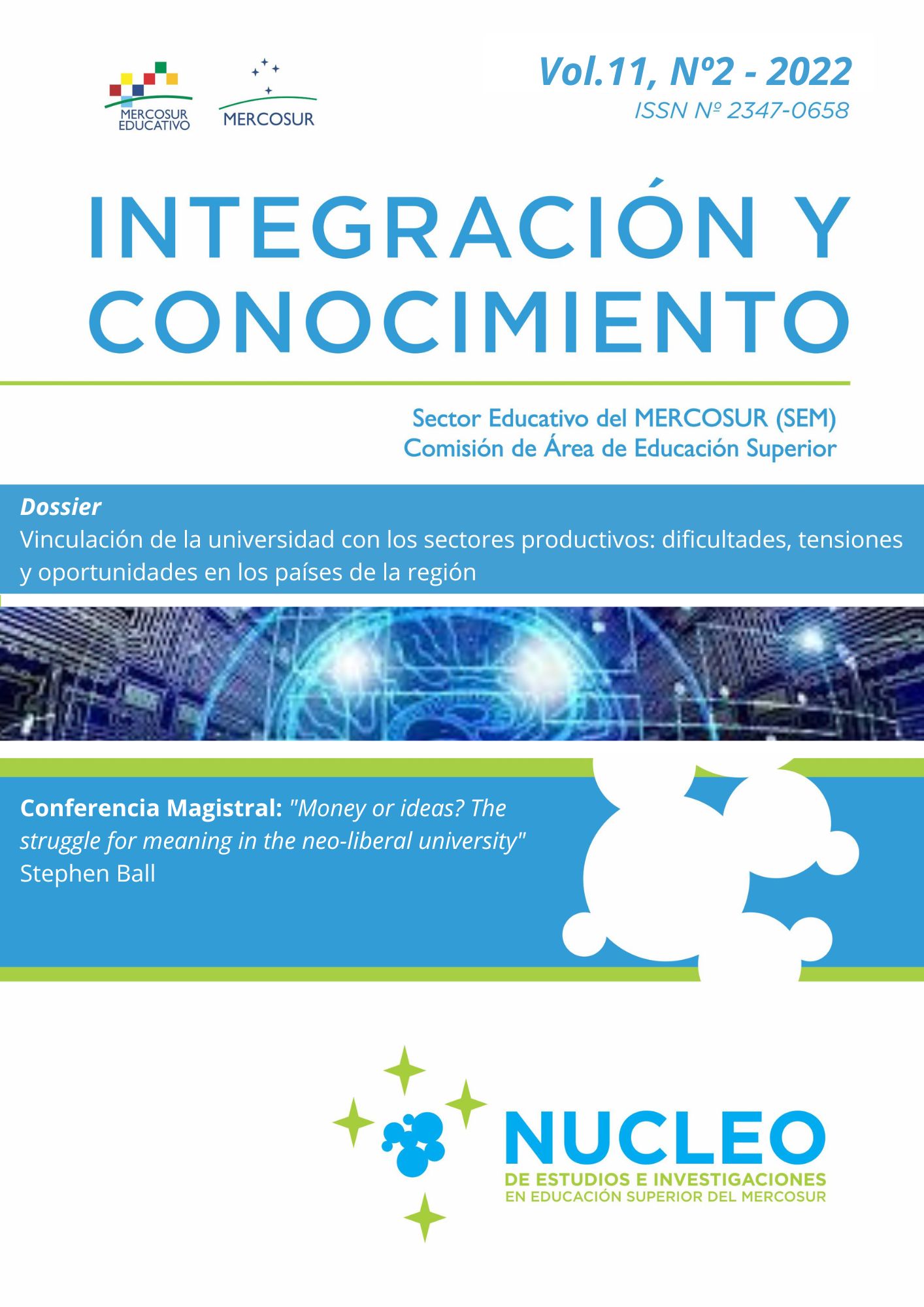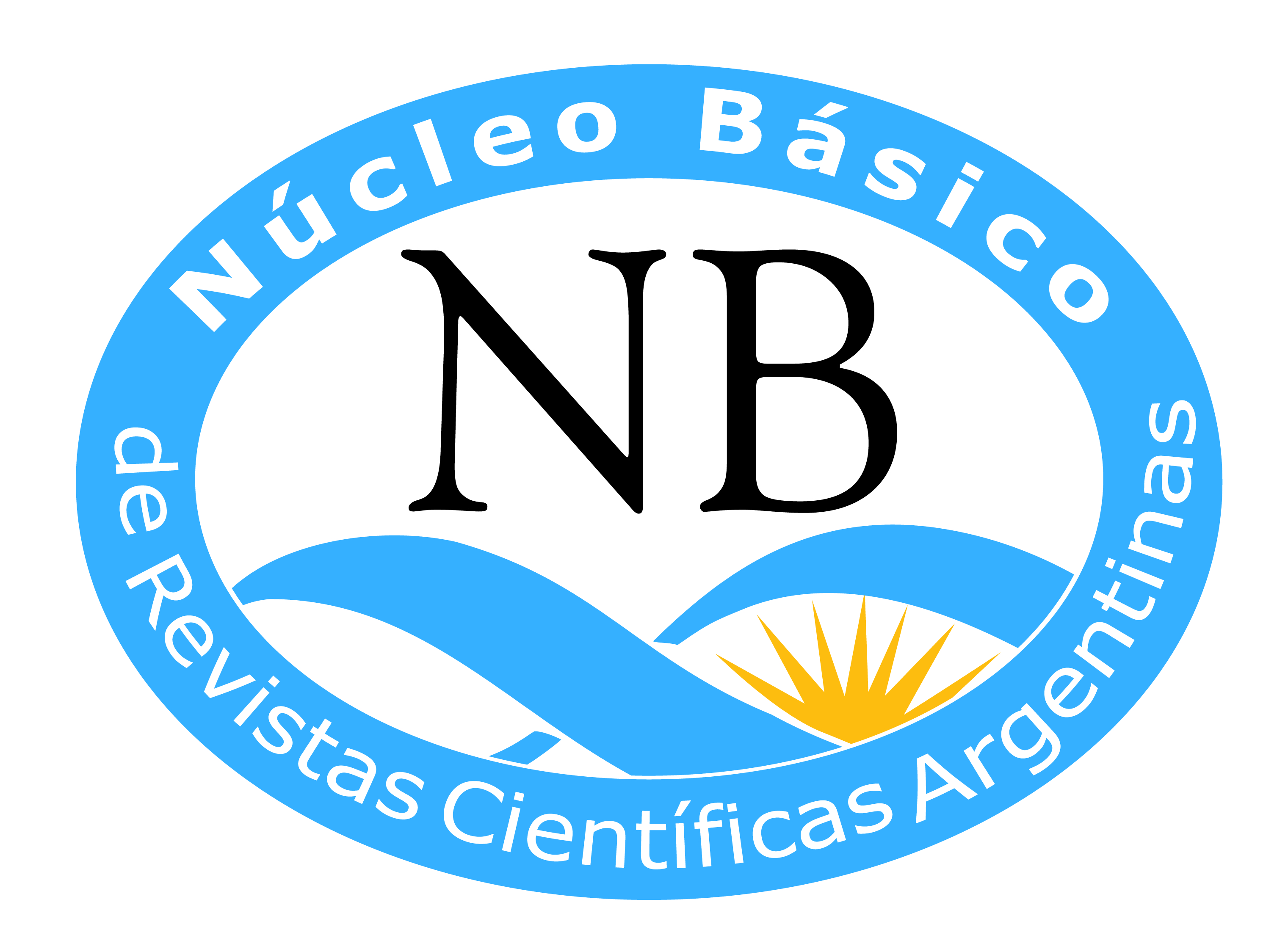University-enterprise: convergence still under construction in Brazil
DOI:
https://doi.org/10.61203/2347-0658.v11.n2.38434Keywords:
university; enterprise; changeAbstract
This essay seeks to reflect critically on the evolution of the university-company relationship in the Brazilian context, which, to a certain extent and way, repeat the incipient articulation existing in Latin America. It is still a partnership in the process of construction. The technological revolution and the rapid changes that are taking place in the Age of Knowledge and Innovation will speed up the steps of this indispensable integration. Companies have sectors and initiatives for training and qualifying their human capital, where school practice is integrated into the company's daily operations. However, the reciprocal is not yet true. The university and the school need to adopt the business culture and good management practices. The model of the traditional academic university is exhausted. It will have to change to survive. Make more room for the relevance of technology. An entrepreneurial university as the addition of a fifth mission? Or, the enlargement and empowerment of knowledge, by expanding its action and becoming a Multiversity?
Downloads
References
Cambi, Franco. (1999). História da Pedagogia. Tradução de Álvaro Lorencini. São Paulo: Ed. Unesp.
CEPAL. (2019). Alternativas para o desenvolvimento brasileiro: novos horizontes para a mudança estrutural com igualdade. Recuperado de: https://www.cepal.org/pt-br/publicaciones/44616-alternativas-o-desenvolvimento-brasileiro-novos-horizontes -mudanca-estrutural.
Fogel, Robert W. (2002)The Fourth Great Awakening and the Future of Egalitarianism. 2nd d. Chicago/IL./EUA, University of Chicago Press.
Jarvis, Peter. (1999). International Dictionary of adult and continuing education. London. Kogan Page.
Kupfer, David. (2016). Indústria 4.0 Brasil. Revista Valor Econômico, São Paulo, Caderno Opinião.
Levy, Pierre. (2019) Tecnologia pode tirar ciências humanas da Idade Média. Entrevista de Pierre Levy a Raphael Hernandes da Folha de S. Paulo, Caderno Ilustrado, p. C 6.
Levy, Pierre. (1999). Cibercultura. Trad. de Carlos Irineu da Costa. S. Paulo: Ed. 34.
Litto, Fredric e Formiga, Marcos. (2009; 2011). Educação a distância - O estado da arte. São Paulo: Ed. Pearson/ABED. V. I. e V. II.
Maison, Robin. (1998). Globalizing education - trends and applications. Rottledge, London, 1998.
MDIC. STI. (2004). Educação Corporativa para a competitividade. Coletânea de artigos. Brasília.
OCDE. (1999). Lifelong learning for all. Paris: OCDE.
OEA. (2010). La eficacia de la cooperación hemisférica: una perspectiva para las Américas. Washinton/DC: Publicaciones OEA.
Pacheco, José. (2016). A escola não é um edifício, são as pessoas. Entrevista do professor José Pacheco a Mariana Tokamia, da Agência Brasil, em Brasília., em 11 de abril de 2016. Recuperado de: https://educacao.uol.com.br/noticias/2016/04/11/a-escola-nao-e-um-edificio-sao-as-pessoas-diz-jose-pacheco.htm
Perraton, Hillary. (2000). Open and distante learning in the developing world. London.
Peters, Otto. (1994). The Industrialization of teaching and learning. London: Routledge.
Santos, Fernando Seabra e Almeida Filho, Noamar. (2012). A quarta missão da universidade - internacionalização universitária na sociedade do conhecimento. Coedição Imprensa da Universidade de Coimbra e Editora Universidade de Brasília.
Schumpeter, Joseph a. (2016) Teoria do desenvolvimento econômico. Tradução de Maria Silvia Possas. São Paulo: Abril Cultural.
Schwab, Klaus. (2016) A quarta revolução industrial. Tradução Daniel. M. Miranda. São Paulo: Edipro.
UNCTAD. (2015) Trade and development report. Recuperado de: https://unctad.org/ webflyer/trade-and-development-report-2015.
Downloads
Published
Issue
Section
License

This work is licensed under a Creative Commons Attribution-NonCommercial-ShareAlike 4.0 International License.
Authors who have publications with this journal accept the following terms:
a. Authors shall retain their copyright and guarantee the journal the right of first publication of their work, which shall simultaneously be subject to the Creative Commons License of Recognition which allows third parties to share the work as long as its author is indicated and its first publication is this journal.
b. Authors may adopt other non-exclusive licensing agreements for the distribution of the published version of the work (e.g., depositing it in an institutional telematic archive or publishing it in a monographic volume) provided that the initial publication in this journal is indicated.
c. Authors are allowed and encouraged to disseminate their work via the Internet (e.g. in institutional telematic archives or on their website) after publication of the article, which may lead to interesting exchanges and increased citations of the published work. (See The Effect of Open Access).



